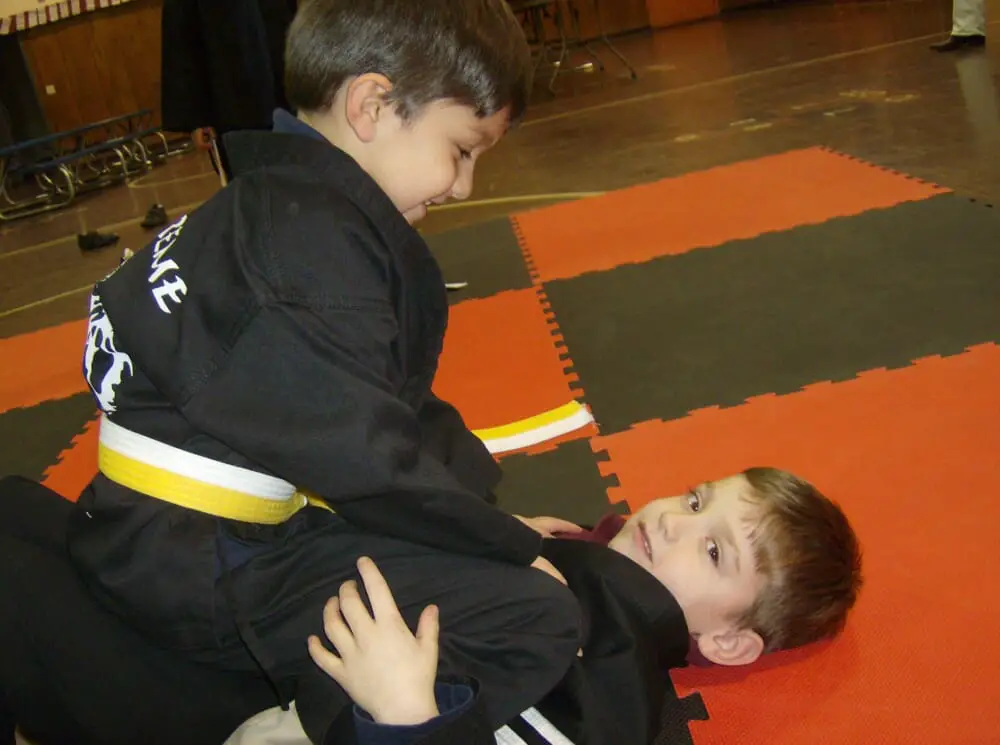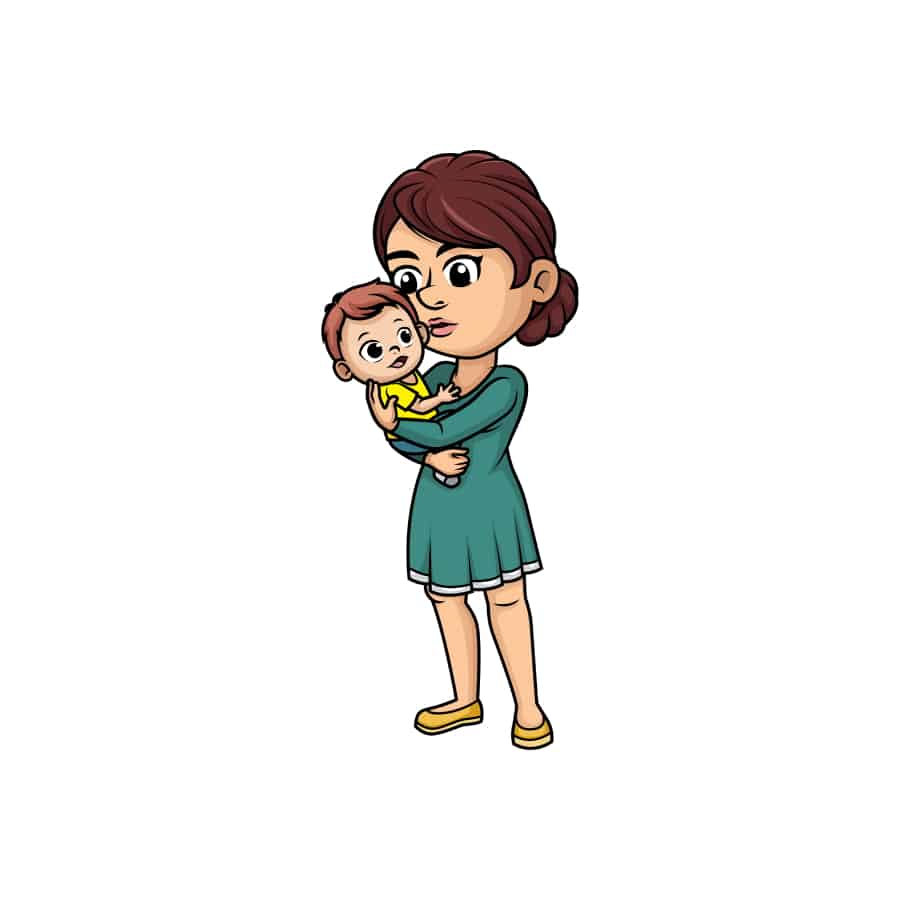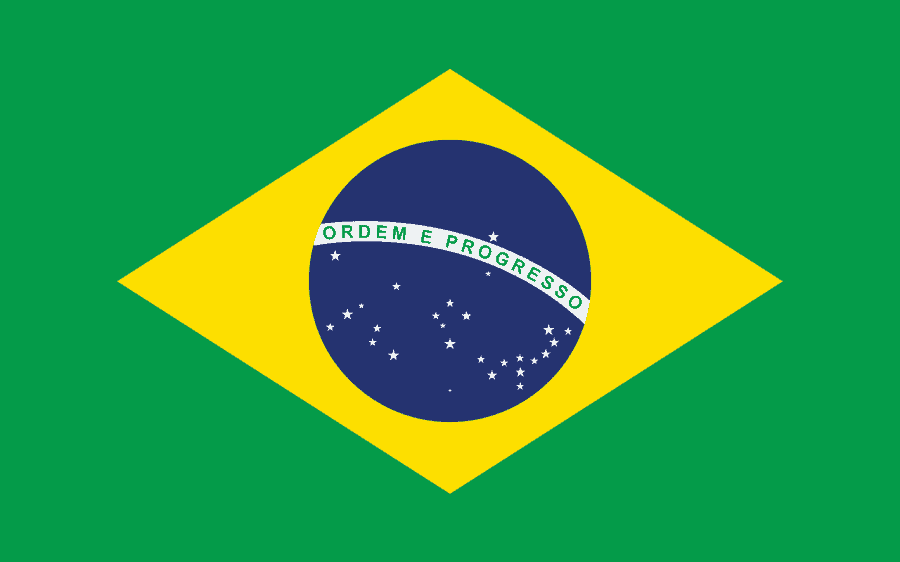
Brazilian Jiu-Jitsu is a non-contact wrestling sport that can have rules and expectations like any other sport. A young child could have trouble grasping these concepts. There is also the level of physicality that some kids could shy away from altogether. What is the right age for kids to start training Brazilian jiu-jitsu?
Eight years old is the appropriate age to start kids in Brazilian Jiu-jitsu. Younger children, if they have an aptitude for the sport, could learn to practice, but their attention spans are normally much smaller, and they have a hard time understanding things they are taught in class.
As with every other type of activity, there will be some bumpy roads and rough patches that they must learn to get through. Some children lack coordination and have so much energy that they are incapable of sitting still. Don’t fret! Read on and discover just what you need to know about the right age to start your child in Brazilian Jiu-Jitsu.
How to Determine the Right Age for Your Child to Start Bjj

When it comes to a BJJ class, many things might intimidate or scare a child. If they are being introduced to physical activity for the first time, they could feel unsure about where to go and what to do. Others could be frustrated by the structure and pace of the class. Have them take a trial before jumping in with both feet.
Each child will also come to a grappling style class such as this with their own preconceived notions of what to expect. Younger children may simply believe they are coming to a super hero style ninja class, or others may think they already can mimic samurai super powers that they see on the ‘big screen’. It takes a bit of an older mind to understand the value, intricacy, and usefulness of a grappling art.
For younger kids, less than 8 years old, there are better options than a pure ground based, submission oriented grappling style. For younger minds and bodies I would suggest some of the following, less technical systems:
- Karate
- Judo
- Kali (modified)
- TaeKwonDo
- Tang Soo Do
- Kung Fu
The best way to tell if your child is ready to tackle BJJ as an art and a sport is by asking these questions:
- Do they have communication skills? – The number of kids in the class could be high. Communicating with the instructor and the classmates in what could be a large crowd, clearly and without being shy, is imperative. Being nervous at first is understood; if there is a rampant non communication pattern, they should abstain from class.
- Can they go to the bathroom by themselves? – By this age, most children should be able to go to the toilet by themselves. During the class, if they need to go, they can dip off the mat and do their business.
- Do they have a friend in the class? – Part of making children stay involved in training is making them like it. If there is a child in the class that they are friends with, it will help them get through the hard parts.
- Will they be able to follow the rules? – Following rules is an essential part of any Brazilian Jiu-Jitsu class. If your child has a problem with authority, they could have trouble in class. Instructors are there for their benefit.
- Can they understand the concept of losing to learn? Unlike Judo, another grappling art suited for all ages, BJJ has a very steep learning curve. The techniques can take as much as a decade to master. This means that a beginning student coming in, and preparing to grapple with other students in the class needs to be prepared to be overmatched regularly in order to hone the proper technique. This can be difficult to say the least for some younger minds.
- Are you as a parent ‘Okay’ with your young child learning armbars and choke holds? Again, unlike the sport of Judo, there are no age restrictions save for the specific ones an individual instructor may set on young children learning dislocation or choking techniques. Some parents are supportive of this, but many are not and need to know that this is a part of Brazilian Jiu Jitsu even for younger students.
These questions must be answerable before you can think about placing your child in the class. They are the base rules that most Brazilian Jiu Jitsu instructors will require before allowing a child participate. If they have any short fallings in these categories, they must be solved before starting up in any class.
For one of the best Jiu Jitsu or Judo training tools you will want to get your child, you are going to want one of these inexpensive throwing/grappling dummies that you can have shipped directly to your house from Amazon.
Reasons You Should Start Your Child Early in BJJ
Society today has moved away from the hard day’s work and into a world of computer screens and iced lattes. Starting your child in a rough and tumble sport is a breath of fresh air in today’s like influenced society. Starting the child in a demanding sport shows them that life isn’t about winning but learning to handle the agony of defeat.
Make no mistake, even though Brazilian Jiu Jitsu itself came from Jigoro Kano’s Judo and it keeps its ‘gentle art’ designation with no striking, it also kept the extreme mental and physical demands. Grappling or wrestling in any form is demanding. Yet in BJJ, you also add in a chess like element where younger students may not be able to compete. The style is very technical.
The best reasons to start your child early in Jiu-Jitsu are:
- The physical training – The best part of training for young kids is the physical portion of Jiu-Jitsu. They become more coordinated and will show improvement in all other sports. Being in physical activity improves most other bodily functions and will give them so much energy that they can’t run it all out in a day. To read more about how martial arts helps prevent childhood obesity, read this other article here that I wrote on the subject.
- The mental benefits – Jiu-Jitsu is a mental sport. The levels of strategy and commitment to practice will set the child on a path to knocking out goals like Mike Tyson in his early 20’s. Learning to fail and get back up is one of the most important mental things a child can learn.
- The social benefits – Too often, children are alone in their rooms or zoned out into their phones or tablets. Having a place where they can let loose and make friends is critical to their survival. BJJ will be an excellent place for them to find new friends and create bonds that could last a lifetime.
The benefits of starting your child early in Brazilian Jiu-Jitsu will open them up to several benefits that other sports might not provide. Keeping them motivated and getting them to class on time is part of it. As a parent, you must be ready to make them train when they don’t want to and push through any problems that may arise.
Rules for the Parents of a Young BJJ Student

Being in Brazilian Jiu-Jitsu challenges the young mind and body, unlike many other sport. It forces them to learn things under pressure that can’t be simulated on a ballfield. For parents, there are a different set of rules that you must follow to keep the child advancing and interested in the class.
For a similar experience, Judo can be a great alternative. It holds many of the same benefits as BJJ only with less of a ground based focus and more of a takedown or throwing based focus. If you would like to read more on the differences and similarities of Judo and Brazilian Jiu Jitsu, see my article here for much more.
Some rules for the parents of young Brazilian Jiu Jitsu fighters are:
- Promotion and Ranking – When children begin classes, they will simultaneously start their march towards ranking up and getting new belts. A parent should know what is expected in each rank and how their child can advance to these ranks. Often, parents let their kids keep up with things like that. Don’t set them up for failure.
- Know your Parental Limits – A parent should know the line between being a parent and being a coach. You are there to support your child and not to tell the coaches how to do their job. When you are invested in your child’s well-being, it can be hard to separate the two.
- Know when to step in when things just aren’t right – Like with any notion, there are two sides to every coin. The atmosphere in a class should be judged before enrollment by parents. Yet, the consideration doesn’t stop there. Sadly there are good and bad instructors, like in every sport or activity. Pushing aggression, superiority, or even pride can be a recipe for a future bully. With kids’ brains developing at a rapid pace at this age, it is up to the parent to make sure instruction in BJJ does not aim to produce the next ‘cage fighting’ champion. Those are adult decisions.
- Stay the Course – No matter what, get your kid to class. Life is full of unexpected occurrences and illnesses. Don’t let laziness spoil this opportunity for your kids. You force them to do things they don’t want to every day. Making them attend a class that will make them better and improves their lives won’t hurt them.
- Be the Motivator – Sometimes, a parent’s job is to motivate the kids. When they have missed a ranking or lost a competition, there is no better time for a parent to swoop in and get the back to work. Failure is a part of life. Getting your child used to the setbacks will make them mental giants.
Parents should be involved with their children at whatever age they begin Brazilian Jiu-Jitsu. They should make sure they go to classes and are invested in ranking up towards new belt levels. They should also learn to let the class go and only get involved if there is a severe injury. Coaches can run the classes without the parent’s help.
Conclusion
The best age to start a child at Brazilian Jiu-Jitsu is the age of eight. At this age, they have a couple of years of education under their belts and know how to take instruction from teachers and parents. If the child has too much energy or a short attention span, they may have to wait a few years to comprehend and pay attention through the lessons.
BJJ is a physical sport that will require the parent to stay involved and keep them going to class. A parent must learn to support and motivate a child to fight through the tough times and come out stronger on the other side.
